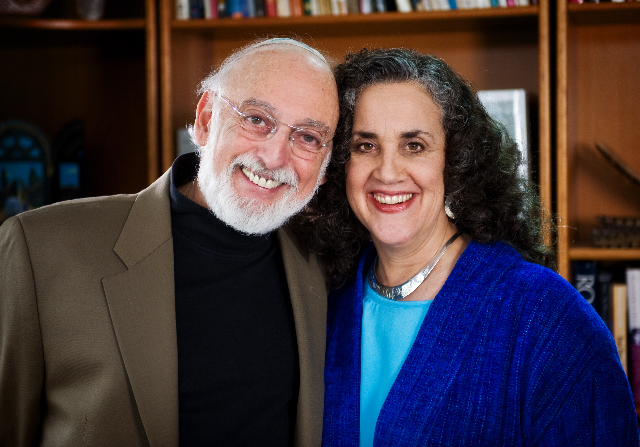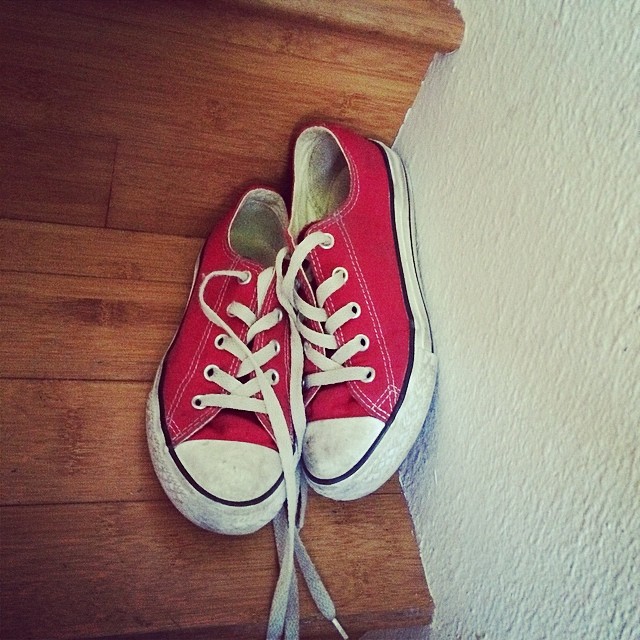
A Gottman Institute Therapist Provides Tips to Keep Your Marriage Strong
The Gottman Institute:
Many of you might have heard about Dr. Gottman of The Gottman Institute and his ability to predict with 98% accuracy which marriages would end in divorce. When I read this statistic, I was intrigued to learn more about this man and the compile of work he has done through the years. The Gottman Institute was co-founded by Drs. John and Julie Schwartz Gottman. The Gottman Relationship Institute has two major functions: helping couples directly, and providing state-of-the-art training to mental health professionals and other health care providers. The Gottman Institute applies leading-edge research on marriage in a practical, down-to-earth therapy and trains therapists committed to helping couples. No other approach to couples education and therapy has relied on such intensive, detailed, and long-term scientific study of why marriages succeed or fail. (Source: www.gottman.com). They offer books, DVD’s and workshops to help couples build a strong relationship.
I had a chance to speak to Dr. Vagdevi Meunier, Psy.D., who is a lead Gottman Therapist and Trainer and a licensed clinical psychologist and Associate Professor at St. Edwards University in Austin, Texas. She has a private clinical and consulting practice in Austin where she specializes in couples and family therapy, couples workshops, training and supervision, and organizational consultation. She tells us how she became part of The Gottman team and offers some suggestions to couples looking to improve their relationships.
Tell us how you became involved in The Gottman Institute Team?
Sometimes between 1995 and 1998, when I was working as a staff psychologist at the University of Texas Counseling and Mental Health Center, I was trying to find a simple model of healthy relationships that I could use with International students primarily from Asian countries who came to the US with their spouses and were having some difficulties. We were concerned about helping them adjust to married student housing. One of my colleagues suggested I look at John Gottman’s work and I read his book Why Marriages Succeed or Fail. It was so transformative that I began to create special workshops for international students based on his ideas. At the same time, I began to use some of his ideas and tools in my own marriage. I had moved to Texas for my internship. My husband had quit his job and moved here trusting that we will make it work. We had an 18 month old son. It was a very rough period in our lives and we did not have the skills or information we needed to understand that having a child has a huge impact on marital satisfaction. Most first time parents don’t know that. This was a finding that Dr. Gottman found in his research that was eye-opening and led to his development of the Bringing Baby Home program.
It is not a exaggeration to say that learning about Gottman’s research and attending the workshop presented by Drs. John and Julie Gottman in Seattle was life-changing in my own marriage. My husband and I are going to celebrate our 25th wedding anniversary next year and back in the mid-90s, we didn’t think we would make it.
In 2004 I left UT-Austin to begin a full-time teaching job at St. Edward’s University in Austin Texas. There I have been teaching masters students in counseling about healthy relationships and couples therapy. I began a private practice as a couples therapist at this time also. I decided to go study under John and Julie and become a certified Gottman therapist. It was the best decision I ever made. I then became approved as a workshop leader, a consultant for the Gottman Institute, and finally a Master Trainer. I now offer couples weekend workshops in Austin and around the country with other Gottman therapists, I teach professionals how to do couples therapy using the Gottman model, and I work with couples in my practice.
One of the things that so impressive about The Gottman Programs and books is that they are based on over 30 years of intensive research by both Dr. Gottman and his wife. If a relationship is in crisis what are some steps you would recommend they take and resources would you direct them to?
If a relationship is in crisis, one of the first things I say to couples is that they should seek out a well trained and qualified couples therapist. Don’t just pick someone from the yellow pages or ask a friend. There are two major models of couples therapy that have been scientifically proven to be effective — one of them is the Gottman Method Couples Therapy and the other is Emotionally Focused Couples Therapy. I would suggest that couples go to the website of these two organizations (Gottman.com and eft.ca) and find a therapist who has completed training in these methods in their local area.
Another piece of advice I give to couples in crisis is to consider a cooling off period before making any drastic decisions. My goal as a couples therapist is not to save every marriage, but to help relationships in crisis from unnecessary separation and divorce. To be sure that a relationship is not working takes time. If there are children involved, the primary goal of both partners should be the welfare of the children in terms of not having to deal with a lot of hostility, stress, and chaos. Research shows (some of this is from Dr. Julie Gottman’s research on same sex couples) that it really doesn’t matter to children’s health whether their parents have a piece of paper saying they are married, whether they live in the same house, or whether they are of opposite genders. Children thrive when the adult partners have a loving respectful relationship, where there is no hostility and chaos, and when the two adults are able to model healthy communication and conflict management. So before taking the step to call it quits on a relationship, I suggest to couples that they first work together on these goals of improving the respect and compassion between them, resolving any conflicts, and building a sense of good will. This will then help them see the relationship from a more balanced perspective and make a thoughtful decision about whether to stay or leave and it will also help them work as a team on how to make the transition a good one for the kids.
Finally when a relationship is in crisis, I suggest to couples that each of them get support from family and friends. Not to make a decision about the relationship but to reduce the stress and sadness. I encourage partners to take a respite and take a weekend off and visit family or just take a few evenings and join a yoga class or get a massage. This doesn’t solve the relationship problems per se but it helps each partner come to the relationship issues with more calmness, thoughtfulness, and compassion. We have to first build compassion for ourselves before we can offer it to others.
What are the major steps you would recommend to a couple who would like to improve their relationship?
The number one secret to happy relationships in my book is to enhance the positivity in the relationship and ignore or minimize the negativity. Don’t focus so much on what is not working well. Begin by focusing on everything that is fabulous and worth celebrating, savor that, and increase it. Often just by increasing the positivity in a relationship, we can create a container for the relationship that makes conflicts seem not that big a deal. When we are in a negative state of mind, every fight feels like a deal breaker. When we are in a positive state of mind, fights feel like blips on a screen and the precious memories take front stage.
Some Tips for Building a Strong Relationship:
— Create rituals of connection — find ways to connect with your partner on a regular basis every single day even if it is for 15 minutes (or 5 minutes three times a day). Send positive texts, leave notes for each other, call your partner to give them a compliment. Make an effort to find something nice to say to your partner every day.
— Share your stresses and accomplishments and get support from each other. Take at least five minutes a day to share what is going on in your life — provide support, validation, and kudos to your partner for sharing, for making an effort in their jobs or with the kids, or whatever stress they are talking about, find things to compliments. Don’t use this as an opportunity to give advice or analyze your partner’s mistakes.
— Small things often helps a relationship feel like a secure haven. Partners in a healthy relationship don’t wait for Valentine’s Day to be told how important they are. They feel cherished 365 days of the year and they might even choose to stay home for Valentine’s so they don’t have to deal with the traffic and the long lines at the restaurants.
 A native of India, Vagdevi has extensive experience with multicultural psychology, especially eastern influences on psychological practice, and cross-cultural research on relationships. Vagdevi’s passion for working with couples comes from personal as well as professional success in applying scientific research on relation-ships to help couples repair, rejuvenate, and redirect relationships in distress towards greater satisfaction and commitment. Vagdevi has over 25 years of experience as a therapist, consultant, and educator and has been full-time core faculty at St. Edwards since 2004 where she teaches primarily marriage and family therapy courses. She has also been a certified Gottman Couples Therapist and a certified Gottman Work-shop Leader since 2006. She offers the Art and Science of Love weekend workshop for couples twice a year in Austin and has joined other workshop leaders to offer this workshop for couples in other cities. (Source: www.gottman.com).
A native of India, Vagdevi has extensive experience with multicultural psychology, especially eastern influences on psychological practice, and cross-cultural research on relationships. Vagdevi’s passion for working with couples comes from personal as well as professional success in applying scientific research on relation-ships to help couples repair, rejuvenate, and redirect relationships in distress towards greater satisfaction and commitment. Vagdevi has over 25 years of experience as a therapist, consultant, and educator and has been full-time core faculty at St. Edwards since 2004 where she teaches primarily marriage and family therapy courses. She has also been a certified Gottman Couples Therapist and a certified Gottman Work-shop Leader since 2006. She offers the Art and Science of Love weekend workshop for couples twice a year in Austin and has joined other workshop leaders to offer this workshop for couples in other cities. (Source: www.gottman.com).
0 Is there any news you would like to share with dandelion moms?
Not sure what you mean by news here. So I will answer it the way I read it
I am starting a new center called the Center for Relationships which will become a resource center for all kinds of relationships. Our tag line is We Care for All Relationships.
Through this center I hope to offer brief 3-hour workshops for couples on topics such as trust, romance, sex, and flourishing relationships. I already offer weekend workshops for couples in Austin Texas twice a year. I also offer couples therapy and marathon couples therapy (for couples from out of state). They can find information about me and the programs I offer at https://www.drvagdevi.com where they can also find a link to sign up for my mailing list.
Thank you Dr. Vagdevi Meunier for your time and helpful suggestions!
Here is more information about Dr. Vagdevi:
 A native of India, Vagdevi has extensive experience with multicultural psychology, especially eastern influences on psychological practice, and cross-cultural research on relationships. Vagdevi’s passion for working with couples comes from personal as well as professional success in applying scientific research on relation-ships to help couples repair, rejuvenate, and redirect relationships in distress towards greater satisfaction and commitment. Vagdevi has over 25 years of experience as a therapist, consultant, and educator and has been full-time core faculty at St. Edwards since 2004 where she teaches primarily marriage and family therapy courses. She has also been a certified Gottman Couples Therapist and a certified Gottman Work-shop Leader since 2006. She offers the Art and Science of Love weekend workshop for couples twice a year in Austin and has joined other workshop leaders to offer this workshop for couples in other cities. (Source: www.gottman.com).
A native of India, Vagdevi has extensive experience with multicultural psychology, especially eastern influences on psychological practice, and cross-cultural research on relationships. Vagdevi’s passion for working with couples comes from personal as well as professional success in applying scientific research on relation-ships to help couples repair, rejuvenate, and redirect relationships in distress towards greater satisfaction and commitment. Vagdevi has over 25 years of experience as a therapist, consultant, and educator and has been full-time core faculty at St. Edwards since 2004 where she teaches primarily marriage and family therapy courses. She has also been a certified Gottman Couples Therapist and a certified Gottman Work-shop Leader since 2006. She offers the Art and Science of Love weekend workshop for couples twice a year in Austin and has joined other workshop leaders to offer this workshop for couples in other cities. (Source: www.gottman.com).To learn more about The Gottman Institute go here: www.gottman.com
Photo’s courtesy of The Gottman Institute




One Comment
Cicely Henderson
Interesting fellow. Perhaps he is really that good to be able to make such assumptions. He has the ability to accurately assess situations and behavioral patterns that is more likely to lead to divorce. His years of experience in handling different couples is the main reason for that ability.